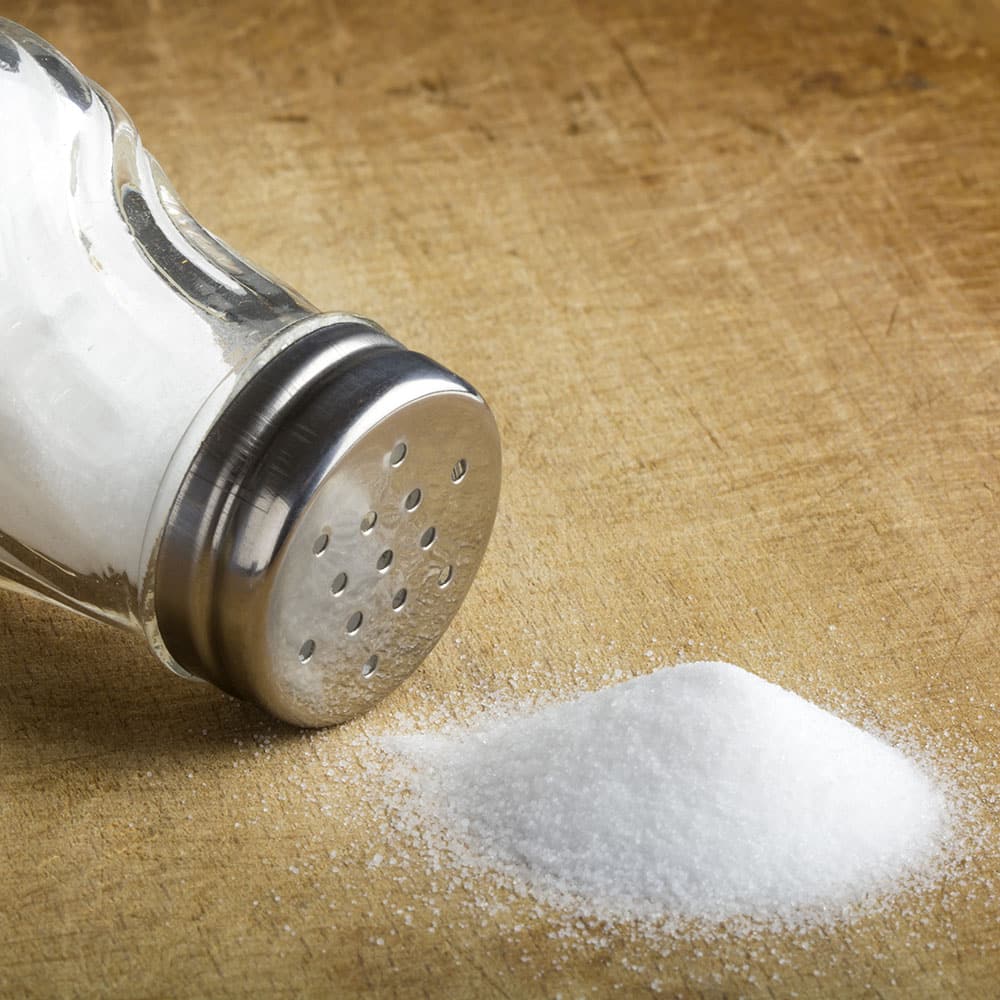If you are living with high blood pressure, you’ve probably been told that you should limit your salt intake. But experts suggest that is only half the solution, increasing your potassium intake can help to lower your blood pressure. To add to this an international group of experts are calling for low-sodium, potassium-enriched salt to be added to the guidelines for the treatment of hypertension.
Around the globe high levels of sodium intake and low levels of potassium intake are widespread, both of which are linked to hypertension and an increased risk of stroke, heart disease, and premature death. This study suggests that using a salt substitute where part of the sodium chloride is replaced with potassium chloride could address both problems at once.
According to Professor Alta Schutte, of The George Institute for Global Health and UNSW Sydney, despite data from randomized controlled trials demonstrating the health benefits of potassium-enriched, sodium-reduced salt substitutes, they are rarely used.
“We found current clinical guidelines offer incomplete and inconsistent recommendations about the use of these salt substitutes,” Schutte said. “Given the wealth of evidence available, we feel it’s time to include salt substitutes in treatment guidelines to help address spiralling rates of uncontrolled high blood pressure around the world and reduce preventable deaths.”
Potassium-enriched salt can directly be used as a replacement for regular salt when seasoning, preserving, or manufacturing foods. One of the benefits of using potassium-enriched salts, besides helping to control hypertension, is that the switch is undetectable by most people.
“Unwanted taste effects are the main reason why efforts to reduce salt intake have failed for more than two decades. The willingness of patients to keep using potassium-enriched salt removes that barrier, which is why it can be a game-changer,” Prof Schutte added.
The international team of researchers from Australia, Japan, India, South Africa, and the United States of America reviewed 32 separate hypertension treatment guidelines and found that all guidelines referring to sodium reduction recommended reducing salt intake. While many recommended also increasing potassium intake only two (the European and Chinese guidelines) made specific recommendations for using potassium-enriched salt.
“High blood pressure kills more than ten million people every year – almost 20 people every minute. Twenty percent of these deaths can be linked to a single culprit: eating too much salt,” he said. “Based on the evidence, there is little doubt that most patients with hypertension and their families should reduce their overall salt intake and, when choosing to consume salt, should switch from regular salt to potassium-enriched salt. This will help reduce blood pressure and protect against serious complications such as stroke and premature death,” said Dr. Tom Frieden, President and CEO of Resolve to Save Lives, a global public health organization focused on preventing 100 million deaths from cardiovascular disease. “As a society, we must prioritize availability and accessibility of low-sodium, potassium-enriched salts – at home, in restaurants, and in grocery stores. These products should not be marketed or priced as a luxury. Low-sodium, potassium-enriched salt can become the new default.”
The mean global sodium intake was recently estimated to be 4.3g/day, or about 10.8g/day of salt. W.H.O. proposed that all member states reduce mean population intake by 30% by 2055, with a maximum intake of 2.0g/day sodium or 5.0g/day salt. Most recent estimates for mean global potassium intake is around 2.3g/day, falling below the recommended intake of 3.5g/day.
The number of people living with hypertension has doubled over the past 3 decades to approximately 1.3 billion people. To address this, a shift is required in our food environment. But there are barriers to challenge to make this shift. Additionally, there are other concerns that must be taken into account such as causing elevated levels of potassium in the blood (hyperkalemia) among those with advanced kidney disease. According to Professor Bruce Neal, Executive Director at The George Institute Australia and Professor of Clinical Epidemiology at Imperial College London Hose, those with advanced kidney disease should not use potassium-enriched salts, but this represents a very small proportion of the population, and these patients are already under recommendations to avoid salt intake.
“No issues with serious harm from hyperkalaemia were recorded in any of the trials to date, though all were done in clinical settings. Our recommendation for use in hypertension is based on patients being managed by a healthcare worker. Healthcare workers know not to recommend potassium-enriched salt in the presence of kidney disease and risks for these patients can be avoided,” write the study authors.
Given that potassium-enriched salt could be one of the few dietary interventions that patients comply with long term, the authors argue that it is therefore logical to at least consider the use of potassium-enriched salt for all who are living with hypertension.
“We strongly encourage clinical guideline bodies to review their recommendations about the use of potassium-enriched salt substitutes at the earliest opportunity – if the world switched from using regular salt to potassium-enriched it would prevent millions of strokes and heart attacks every year at very low cost,” added Prof Schutte.
Proposed Recommendations
The authors have proposed the following wording for inclusion in the clinical guidelines for blood pressure control:
“Strong recommendation for patients with hypertension – Potassium-enriched salt with a composition of approximately 75% sodium chloride and 25% potassium chloride should be recommended to all patients with hypertension, unless they have advanced kidney disease, are using a potassium supplement, are using a potassium-sparing diuretic or have another contra-indication.’
“Conditional recommendation for the general population – If you have to add salt to foods, potassium-enriched salt with a composition of approximately 75% sodium chloride and 25% potassium chloride can be recommended for use by the general population in settings where there is a low likelihood that people with advanced kidney disease (stage 4-5) will be undiagnosed by the health system and contraindications to use can be printed on product packaging.”




